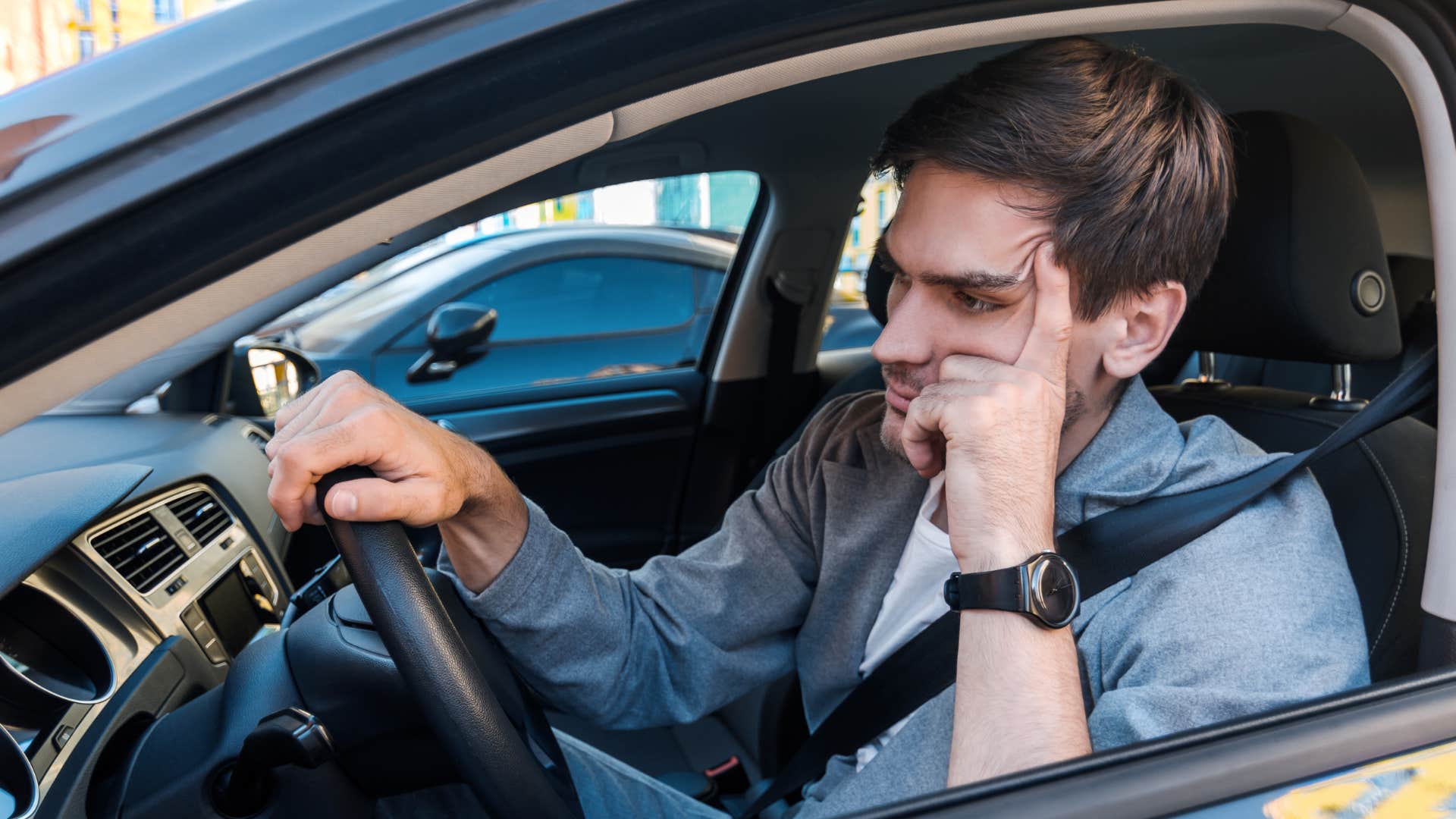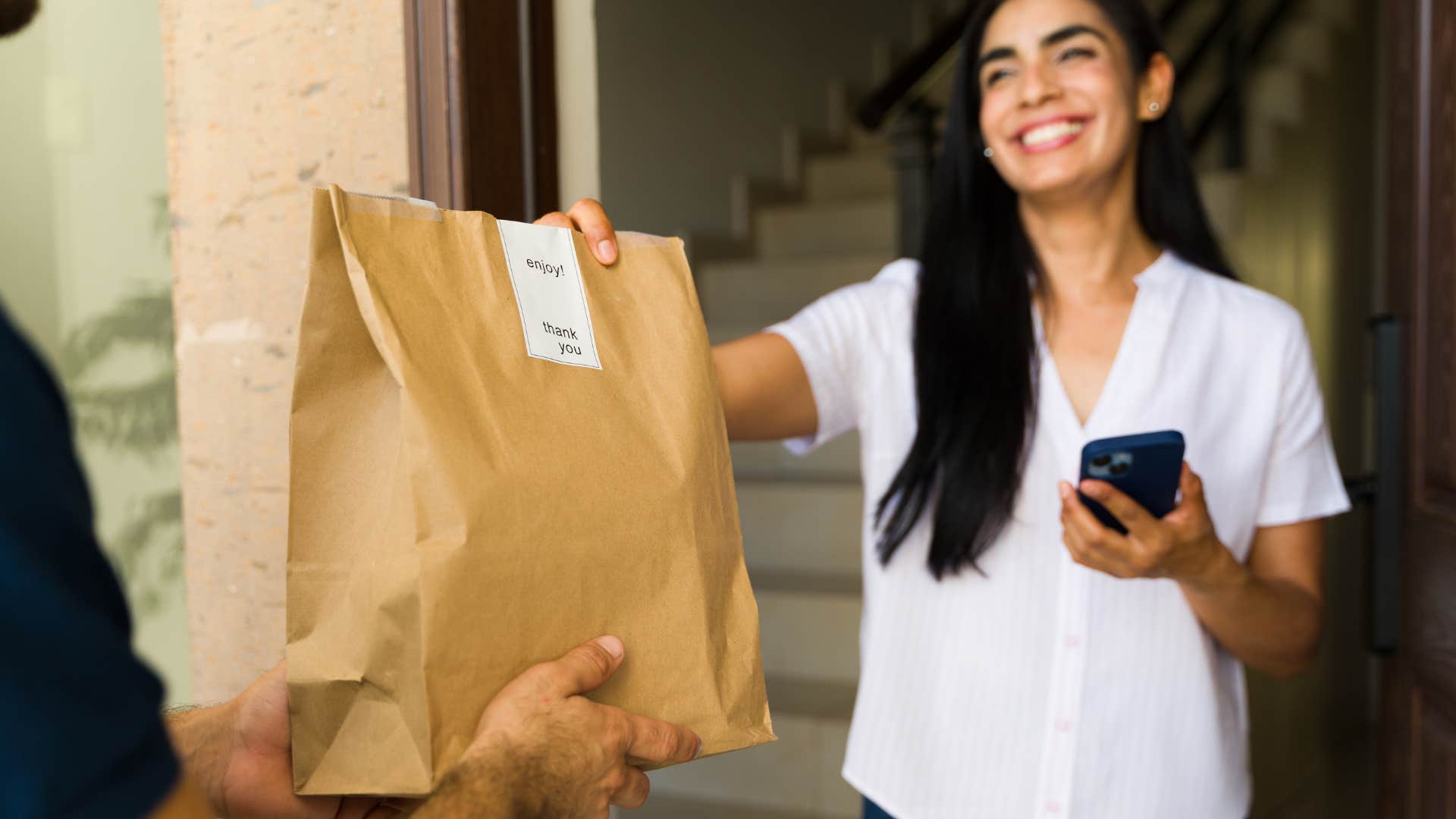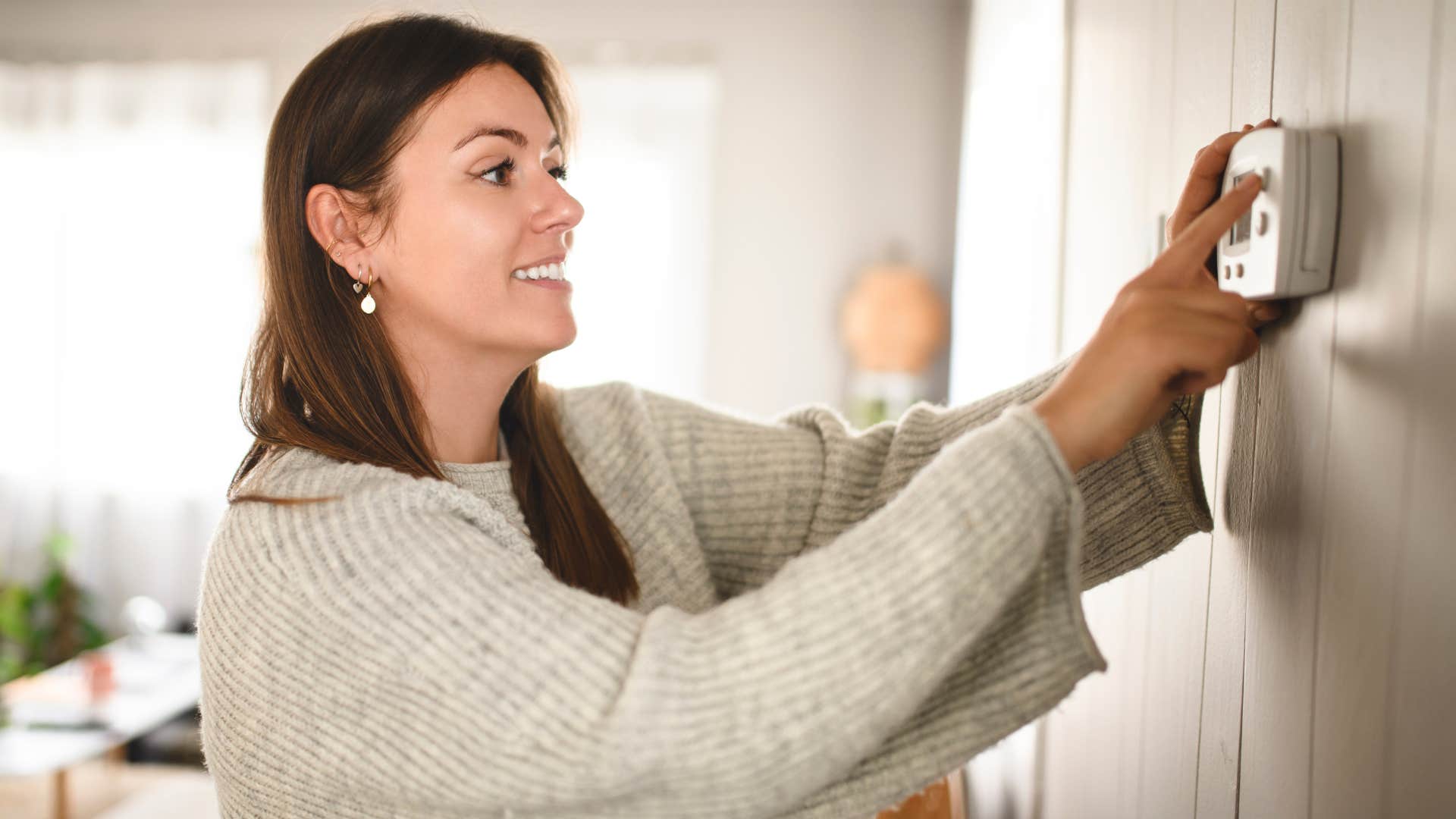If You Grew Up Poor, You Probably Still Refuse To Spend On These 11 Everyday Things
They're not fooled by the allures of convenience.
 Dragon Images | Shutterstock
Dragon Images | Shutterstock While children who grow up in poverty do often experience adverse social, psychological, and physical outcomes, many of which a study from the Journal of Social Service Research unpacks, there are also subtler beliefs and habits that follow them into adulthood. Even on a purely financial level, the "survival mindset" and shame that perpetuates low-income families can root itself in an adult child's life, even after they've secured a well-paying job or a financially free lifestyle.
From avoiding the convenience of delivery to paying for gas, if you grew up poor, you probably still refuse to spend on these everyday things. While some are money-saving, others could be contributing to a survivalist mindset that not only evokes more stress, but isolates you from healthy relationships — both with other people and with money.
If you grew up poor, you probably still refuse to spend on these 11 everyday things
1. Full-price groceries
 PeopleImages | Shutterstock
PeopleImages | Shutterstock
A study published in Science found that people who have experienced poverty tend to be more practical problem-solvers. When money is tight and they're forced to figure it out with what's in front of them, they are strategic in ways that their wealthy counterparts may never consider.
From using coupons to tailoring a grocery list to account for sales, if you grew up poor, you probably still refuse to spend on brand-name and full-price items. This is one of the strategic ways you can still save a few dollars on everyday necessities like groceries, even if you have the money to afford the brand-name soda or the full-priced produce item.
2. Bottled water
 Art_Photo | Shutterstock
Art_Photo | Shutterstock
Even though it seems like an insignificant cost and expense, a study conducted by Penn State University argues that the average American can save nearly $1,300 by opting for a reusable water bottle over single-use plastic alternatives. Of course, sustainability isn't necessarily the root behind low-income individuals making this swap, but rather a distaste for convenience at the expense of a few dollars.
Even if using a reusable water bottle takes more time in the morning and planning to remember, if you grew up poor, you probably still refuse to spend on single-use products for the sake of convenience. You're used to making small compromises to save a few dollars, even if it doesn't make a huge difference in the grand scheme of your financial situation.
3. Parking
 Monstar Studio | Shutterstock
Monstar Studio | Shutterstock
According to an INRIX study, the average American driver spends nearly 17 hours a year searching for parking and another $345 just in wasted time, energy, and fuel. On top of paying for the actual parking spot, overestimating time to avoid tickets, and accounting for the fuel and tolls it takes to drive places, it's not surprising that people from low-income backgrounds try to avoid pay-for-parking expenses.
Of course, in big cities and urban areas, the time and expenses associated with parking increase substantially, with New York City drivers spending 96 hours and an extra $896 annually just looking for a place to park.
If you grew up poor, whether you had a car or not, chances are you grew accustomed to finding shortcuts for these costs. Whether it was walking, carpooling with others, or taking public transportation, your family was willing to overlook convenience for the sake of long-term savings — and it stuck with you.
4. Delivery fees
 antoniodiaz | Shutterstock
antoniodiaz | Shutterstock
A study from the University of Michigan found that people in low-income areas often eat more processed foods and snacks because they lack accessibility. They don't have local grocery stores or food accessibility in the same ways that their wealthier counterparts do, so in many cases, it's not a matter of convenience or nutrition, but of accessibility: What do they have access to eat and buy?
Even after adult children move out of these areas, that mindset tends to linger. They don't use the restaurants or delivery services they now have access to, but stretch meals and buy the low-cost items in bulk to satisfy their ever-present survival mentality.
Of course, the cost of convenience is often impossible to afford for low-income households as well. So, if you grew up poor, you probably still refuse to spend on things like delivery fees, knowing that spending a little extra time and effort can save you a lot of money.
5. Fancy skincare and makeup
 Yaroslav Astakhov | Shutterstock
Yaroslav Astakhov | Shutterstock
People who grew up poor typically remember the yearning they felt watching their friends or people online get the best, newest, and fanciest things. Whether it was new clothing, makeup, or toys, there was always a separation between what everyone else had and what they could afford. Rooted at the center of that experience? Guilt and shame.
Even after moving out of a low-income area or making their own money as adults, that internalized shame lives on, preventing adult children from being able to spend on little luxuries like a nice perfume or a brand-name makeup product that they don't "need."
6. Premium gas
 Dusan Petkovic | Shutterstock
Dusan Petkovic | Shutterstock
Premium gas is an unexpected expense related to class. Not only do low-income people try their best not to spend on gas at all — often struggling to afford basic necessities outside of transportation costs — if they do have to, it's on the cheapest option.
According to an AAA study, it's also a waste, with American drivers wasting billions of dollars every year by investing in premium gasoline that often shows little to no performance or efficiency differences from regular gas options. So, if you grew up poor, you probably still refuse to spend on these perceived little luxuries, but you're better off for it.
7. Movie theater snacks
 Nestor Rizhniak | Shutterstock
Nestor Rizhniak | Shutterstock
If you grew up poor or in the lower middle class, you probably know exactly how exciting going to a movie out of the house with your family felt. Not only the excitement of watching a new movie and going out, but also of smuggling in gas station treats under your coat or in your mother's purse.
Of course, movie theaters are notorious for overcharging customers for concessions like candy and popcorn, but for low-income families, it wasn't even an option. Even movie tickets for the entire family by themselves were a strain, so if you grew up poor, you probably still refuse to spend on the outrageously priced snacks, and instead smuggle in your own.
8. Convenience meals
 Ika Rahma H | Shutterstock
Ika Rahma H | Shutterstock
Whether it's going out for a latte, grabbing a fast food lunch at the office, stopping for a gas station snack while driving, or ordering a meal from DoorDash, if you grew up poor, you probably still refuse to spend on these everyday items.
As a kid, they were completely out of reach, but with a lingering survival mindset and their hypervigilance about wasted money, adults who grew up poor likely still avoid spending on these subtle conveniences.
9. Running the AC all day
 Lopolo | Shutterstock
Lopolo | Shutterstock
If you grew up poor, you probably still refuse to spend on everyday things rooted in comfort. Like convenience, comfort is something you can tackle only on your own without seeking instant gratification from spending money. Including setting the temperature of your home, sometimes it's cheaper to put on a sweater or use a fan than to immediately turn on the heat and AC.
While it might be subtly annoying to guests and friends for these adult children, experts suggest that being adamant about conscious thermostat temperature can save people up to 15% annually on their energy expenses. So, yes, it might be a little cold in the winter or hot in the summer months, but when it comes to paying bills, they're not struggling to make it work.
10. Subscriptions and upgrades
 TetianaKtv | Shutterstock
TetianaKtv | Shutterstock
Whether it's a technology upgrade for their phones or a monthly subscription for entertainment, many people who grew up in poverty are conditioned to use things until they break. They're not spending on "the next best thing" or putting their financial stability at risk for something they don't need, even if everyone around them has it.
It's these small expenses that often add up, even if it's just a few extra dollars a month. At the end of the year, these adult children save themselves from overspending, while the average American drops nearly $1K on these subscriptions, many of which they don't ever use.
11. Ride-sharing
 maxbelchenko | Shutterstock
maxbelchenko | Shutterstock
Rather than wasting money on the convenience of a ride-share, people who grew up poor have been conditioned to plan and spend more time to save the most money. Whether it's carpooling to work, taking public transportation home, or walking, they're less likely to spend on convenience, especially considering that the majority of ride-share offerings are easily replaceable by public transit.
Especially in big cities and urban areas where Ubers and Lyfts grow exponentially in price, it's just not worth it.
Zayda Slabbekoorn is a senior editorial strategist with a bachelor's degree in social relations & policy and gender studies who focuses on psychology, relationships, self-help, and human interest stories.

